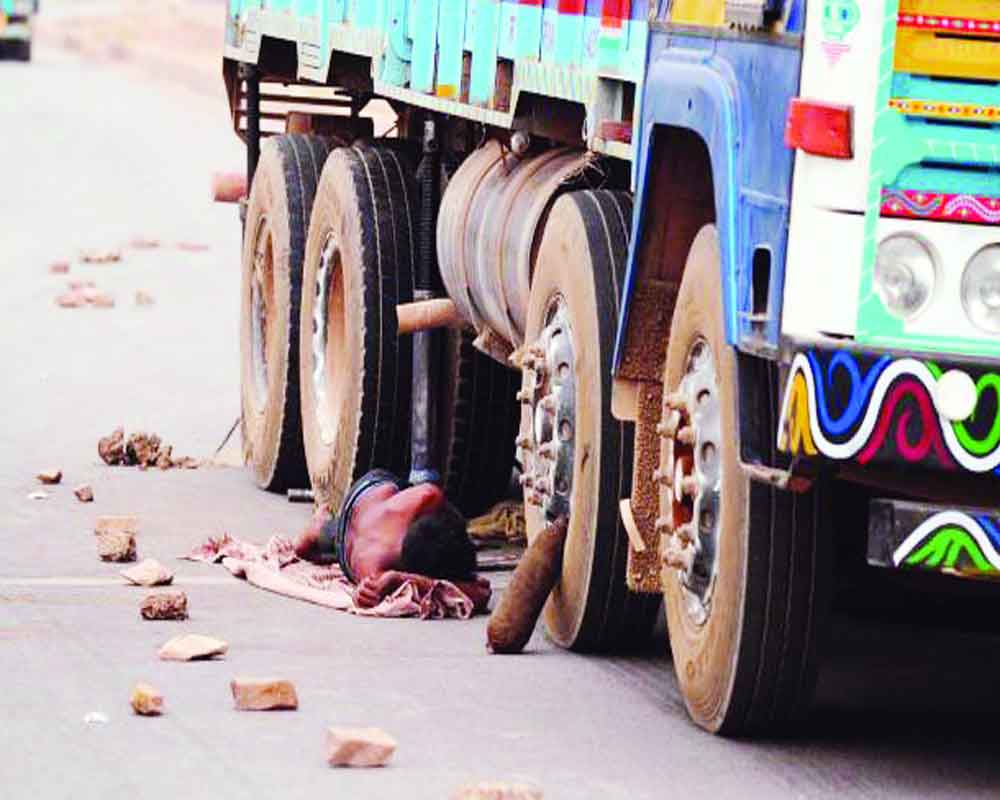The long-drawn seven-phase elections are over and the results have come. Needless to say that the elections this time were fought on emotive rather than rational plank. For some observers, though, elections are always based on emotional rather than real issues. But the Indian experience may prove otherwise on many occasions. Nevertheless, there is a need to focus on the core issues which were largely glossed over in the cacophony of noise largely created by motivated media campaigns that were premised on the “heavens will fall doctrine”. So the two sides of the divide were both trumpeting the same sound — if not we, the heavens will fall. But the fact remains that heavens will not fall, because heavens cannot fall. Anyway, it is time to get on to the brass tacks right away. Interestingly, everyone is aware of what needs to be done. But immediate gains become important. So, there is a supplementary question that comes in the way: What is there for me? It is this question that makes all and sundry deviate from the issues as people are driven by the logic that in the long run, everyone is dead. Well, that does make sense for the present generation, but there is a need to think of the generations to come. History is replete with examples that suggest that even monarchs thought of the future and made plans that were strategic and long term in nature. Sher Shah Suri planted trees on both sides of the Grand Trunk Road, though he knew it would take years before they grow full length. The unfortunate part is that people, in their craving for power, occupy themselves with next elections rather than the next generation. There is an urgent need for statesmanship in the political dispensation that can address issues of realpolitik rather than abstractions that charge people for a short while, but do precious little to address the ground realities. As the new Government takes over, there is a need to broach over the basics, the real agenda. As many politics-watchers rightly pointed out, the most serious issue of our times — climate change — hardly found a mention in the electoral debate. The problem is serious and concerns all of us. It is the environment, the ecosystem, which sustains life. In the primary class geography books, we used to read about its critical nature. Unfortunately, no one is bothered about ecology these days. But the rate at which the mean temperatures are rising and pollutants choking the atmosphere, all those investments in technology may be rendered ineffective. Nature’s disapproval of human ways are already loud and clear, only we need to read the writing on the wall. Addressing the sustainability of the ecosystem must then be the topmost item on the agenda of the Government. But it must also be understood that the physical ecosystem is too intricately connected with the social ecosystem. The trees, rivers, land all provide lifeline to the poor also. The plight of the underprivileged class which, despite the statistical jugglery, comprises a large section of the populace and is no less responsible for the damage to the environment than the big industries. It is equally important to think of income generation schemes for the poor and deprived. The rich man’s greed and the poor man’s need are both equally responsible. The physical environment and the socio-economic environment are parts of the same whole.
Pathak is a professor of management, writer, and an acclaimed public speaker. He can be reached at ppathak.ism@gmail.com


























